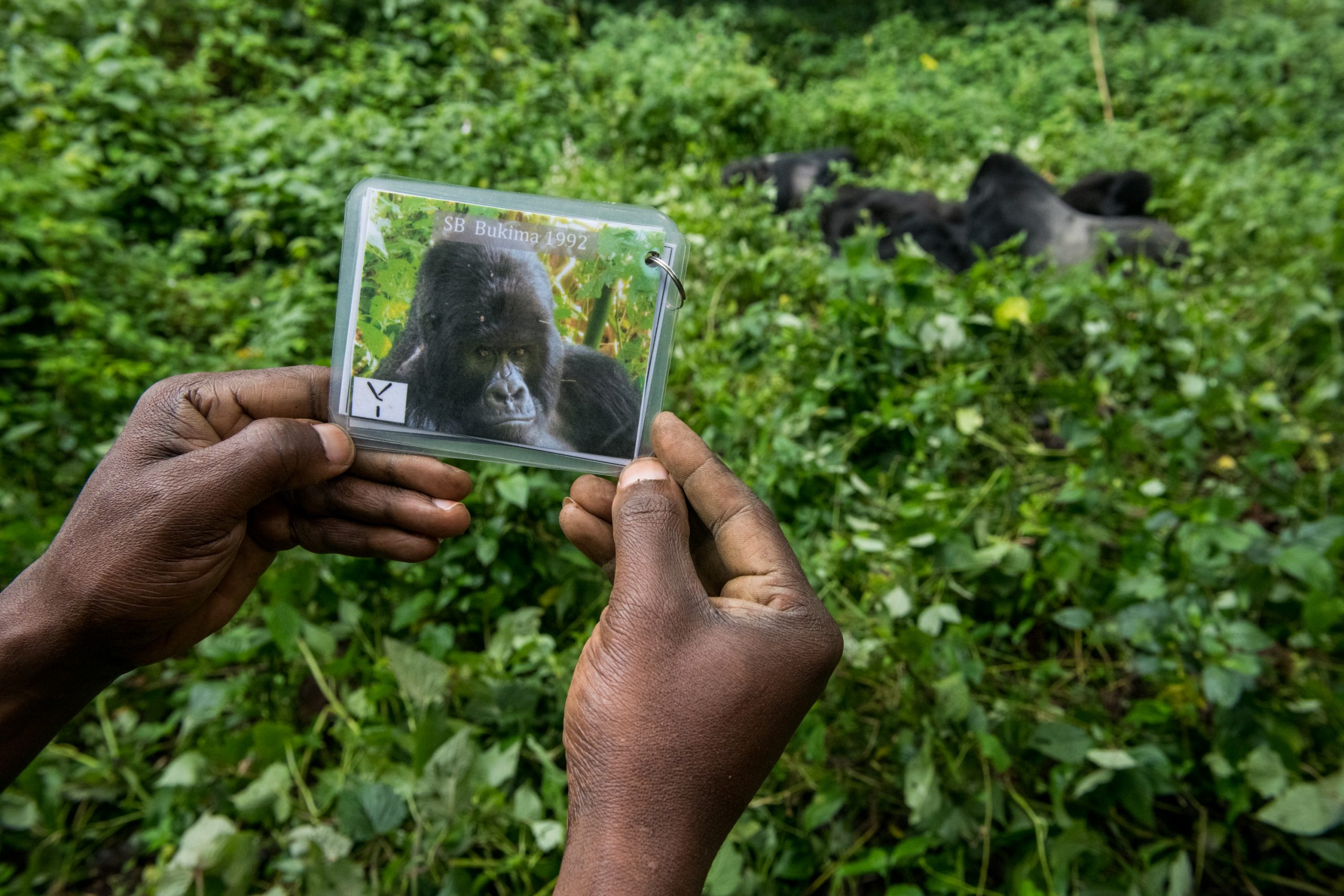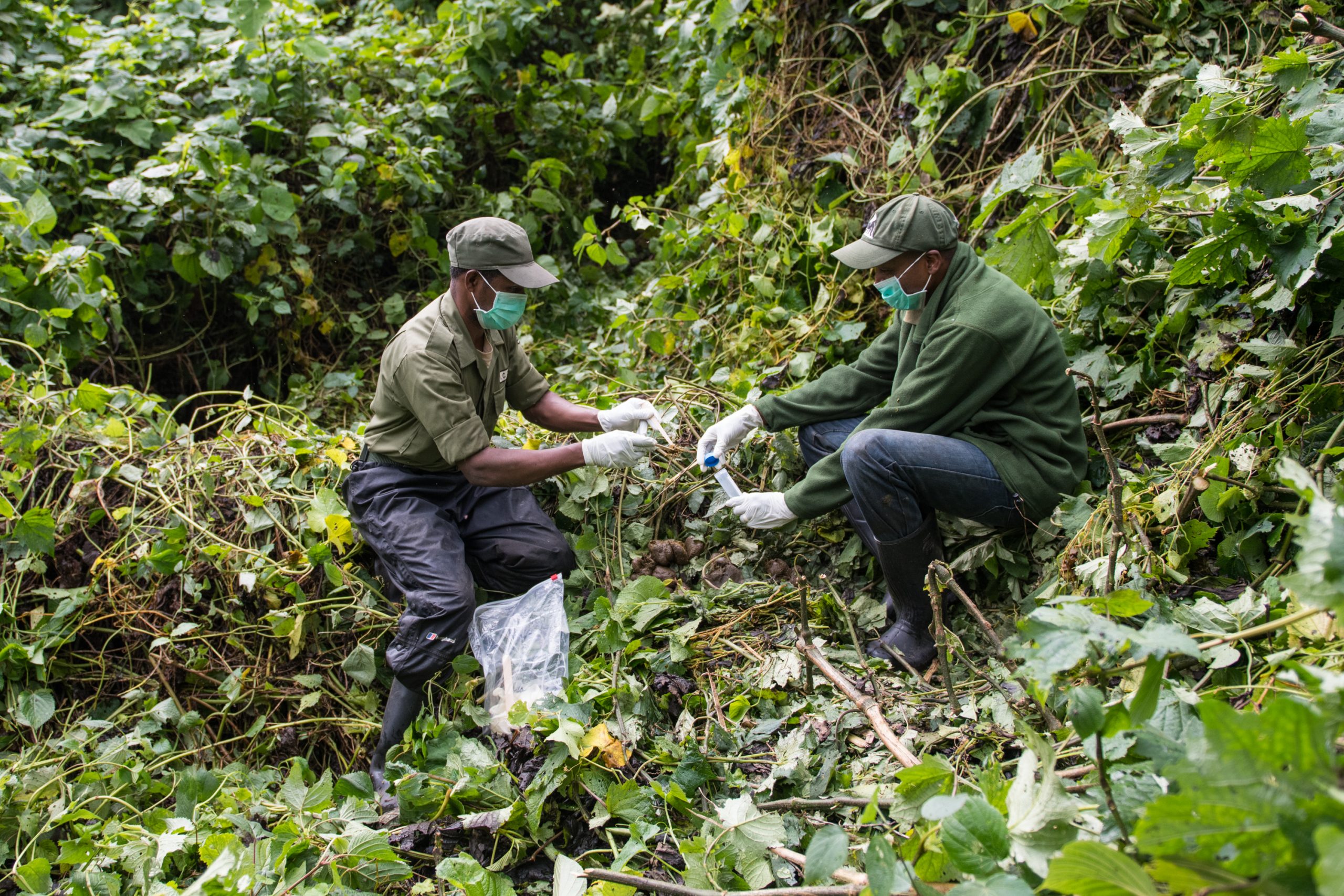Conservation Science
Much of what we know about mountain gorillas is from long-term behavioral studies of family groups of gorillas habituated to human presence. IGCP supports ecological studies of mountain gorillas at subpopulation and population levels, to better understand the broader population dynamics along with the changes in habitat, climate and poaching to make informed actions and conservation investments.
IGCP works in partnership with other organizations and academic research institutions to carry out important conservation science in the region, including the Institute for Tropical Forest Conservation, The Dian Fossey Gorilla Fund, Max Planck Institute for Evolutionary Anthropology, among others.
Key areas of IGCP leadership in conservation science in recent years, has been in the surveys of mountain gorillas, select large mammals, and human activities in the Virunga Massif (’15-’16) and Bwindi-Sarambwe (’18), vegetation mapping (‘20), and ongoing work to conduct ecological and social assessments regarding landscape and buffer zone planning.
Our focus on conservation science ensures that IGCP’s advocacy positions and actions, and those supported by IGCP more broadly, are founded on evidence.

